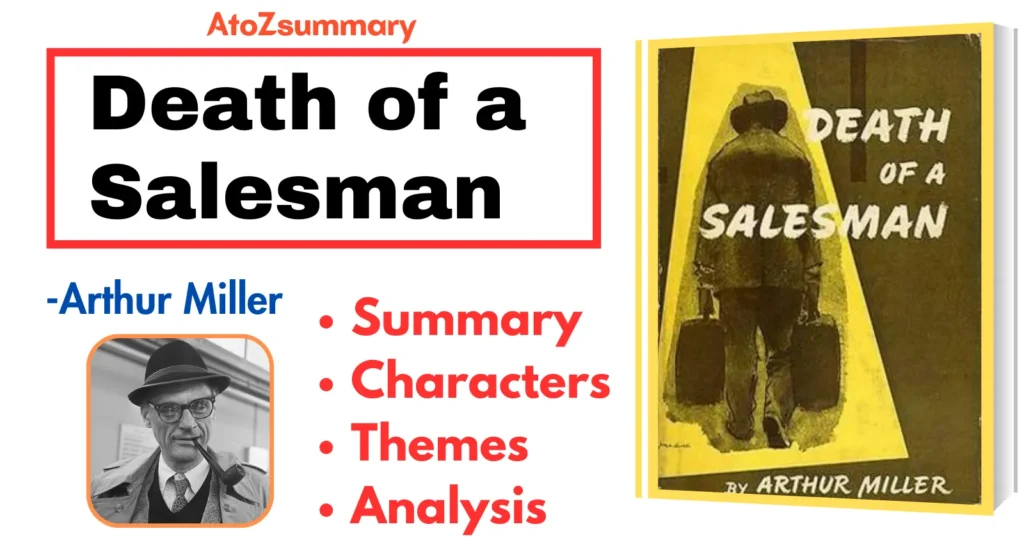About the Poem “Mending Wall“
| Poem Title | Mending Wall |
| Author | Robert Frost |
| Publication | 1914 |
| Setting | A rural New England farm |
| Themes | Boundaries, isolation, connection |
| Main Characters | The narrator and his neighbor |
| Form and Style | Narrative poem, Blank verse (unrhymed iambic pentameter) |
| Poetic Devices | Irony, enjambment, assonance, symbolism |
| Imagery | Walls, spring, frost, nature |
| Tone | Reflective and contemplative |
| Key Symbols | The wall, nature, and apples |
| Message | Examines the purpose and impact of barriers in human relationships. |
Themes of Mending Wall
The themes of “Mending Wall” by Robert Frost are:
- Boundaries ➤ The poem delves into the idea of setting physical and metaphorical boundaries between people, highlighting the human need for personal space and privacy.
- Tradition ➤ It examines the role of tradition in our lives and questions whether some traditions should be maintained just because they have always been followed.
- Isolation ➤ The poem touches on the idea of human isolation and the emotional distance that can be created by maintaining walls and barriers between individuals.
- Unity and Separation ➤ It contrasts the concepts of unity and separation, suggesting that while walls can provide a sense of security, they can also keep people apart.
- Nature and Humanity ➤ The poem also looks at the relationship between nature and humanity, with the wall being a man-made structure in the natural world, prompting reflection on the balance between the two.
“Mending Wall” Poem by Robert Frost
Something there is that doesn’t love a wall,
That sends the frozen-ground-swell under it,
And spills the upper boulders in the sun;
And makes gaps even two can pass abreast.
The work of hunters is another thing:
I have come after them and made repair
Where they have left not one stone on a stone,
But they would have the rabbit out of hiding,
To please the yelping dogs. The gaps I mean,
No one has seen them made or heard them made,
But at spring mending-time we find them there.
I let my neighbor know beyond the hill;
And on a day we meet to walk the line
And set the wall between us once again.
We keep the wall between us as we go.
To each the boulders that have fallen to each.
And some are loaves and some so nearly balls
We have to use a spell to make them balance:
‘Stay where you are until our backs are turned!’
We wear our fingers rough with handling them.
Oh, just another kind of out-door game,
One on a side. It comes to little more:
There where it is we do not need the wall:
He is all pine and I am apple orchard.
My apple trees will never get across
And eat the cones under his pines, I tell him.
He only says, ‘Good fences make good neighbors.’
Spring is the mischief in me, and I wonder
If I could put a notion in his head:
‘Why do they make good neighbors? Isn’t it
Where there are cows? But here there are no cows.
Before I built a wall I’d ask to know
What I was walling in or walling out,
And to whom I was like to give offense.
Something there is that doesn’t love a wall,
That wants it down.’ I could say ‘Elves’ to him,
But it’s not elves exactly, and I’d rather
He said it for himself. I see him there
Bringing a stone grasped firmly by the top
In each hand, like an old-stone savage armed.
He moves in darkness as it seems to me,
Not of woods only and the shade of trees.
He will not go behind his father’s saying,
And he likes having thought of it so well
He says again, ‘Good fences make good neighbors.’
Mending Wall Summary & Analysis
Mending Wall is a poem by Robert Frost published in 1914. The poem is set in the spring, when the speaker and his neighbor meet annually to repair the stone wall that separates their properties.
The poem begins with the speaker and his neighbor meeting in the spring to repair the wall that separates their lands. The neighbor firmly believes in the old saying, “Good fences make good neighbors,” and sees the wall as a necessary boundary. He repeats this idea, emphasizing the importance of maintaining the barrier between them.
The speaker, on the other hand, questions the need for the wall. He points out that there are no cows to be contained on his side, and he doesn’t have apple trees, while his neighbor has pine trees. He humorously suggests that it’s elves who are causing the gaps in the wall, which the neighbor dismisses. This difference in perspective highlights the contrast between the two characters.
As they work together, the speaker reflects on the nature of the wall and why they continue to mend it. He ponders the idea that “Something there is that doesn’t love a wall” and thinks about the forces in nature that work against the wall, such as frozen ground and hunters. He questions the need for a wall to separate them, as they don’t have any livestock or other practical reasons for it.
The neighbor, however, remains steadfast in his belief in the importance of the wall. He is deeply rooted in tradition and sees the act of wall-mending as a form of neighborly bonding. He insists that “Good fences make good neighbors,” and this saying is all he needs to justify their yearly ritual.
In the end, the speaker expresses his doubt about the wall’s necessity and suggests that it might be just as well to let the wall remain in disrepair. But the neighbor remains committed to the tradition of mending the wall, and they both go on with their work.
FAQs from Mending Wall
What is the message of the Mending Wall?
The message of peom “Mending Wall” is about questioning the need for walls that separate people.
What is the major metaphor in Mending Wall?
The major metaphor is that good fences make good neighbors, suggesting that boundaries are important for maintaining relationships.
What does the neighbor represent in Mending Wall?
The neighbor represents caution, tradition, and the need for boundaries.
What is ironic about the speaker in Mending Wall?
The speaker says “Good fences make good neighbors,” but he’s fixing the wall with his neighbor, which is kinda ironic.
What does the fence symbolize in Mending Wall?
The fence in “Mending Wall” symbolizes the tradition and division between neighbors.
What happens at the end of Mending Wall?
The speaker and his neighbor finish mending the wall, but they remain divided in their views on its necessity.










